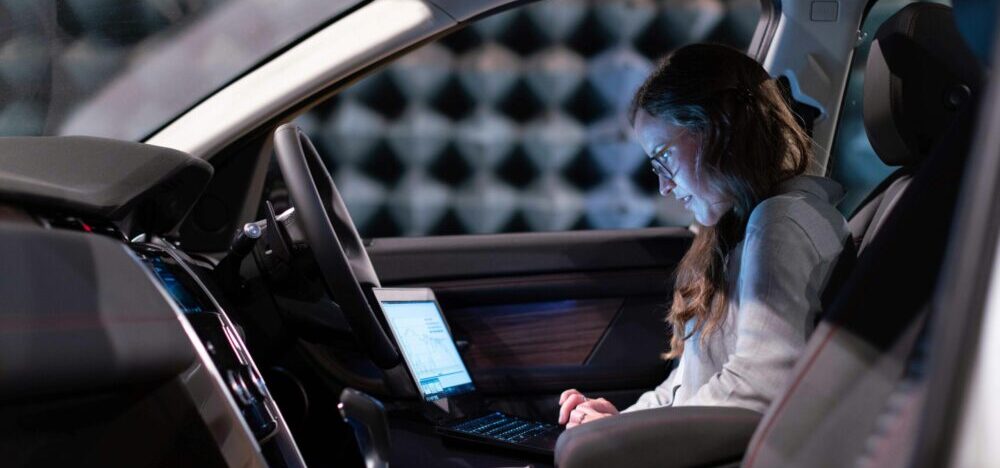
How Auto Manufacturers Are Collecting Data
Welcome to the age of smart cars—where vehicles aren’t just modes of transportation anymore but data-collecting machines. Auto manufacturers are gathering massive amounts of personal information from your car, often without you realizing it. From your driving habits to your location and even your phone’s contacts, cars have become rolling surveillance devices.
Let’s take a closer look at what’s happening, how it impacts your privacy, and—most importantly—how you can stop it.
How Auto Manufacturers Are Collecting Your Data
Modern cars come with advanced tech systems that track and store data. Here’s how major auto manufacturers are involved:
- Ford: Through its FordPass app, Ford collects driving data, location info, and even your phone’s contact list.
- Tesla: Tesla’s cars gather driving patterns, GPS details, and even audio from its always-on microphones inside the vehicle.
- General Motors (GM): Via the OnStar system, GM tracks vehicle speed, braking habits, and location.
- Toyota: Toyota’s Entune system logs navigation routes, music preferences, and smartphone interactions.
While these companies claim that data collection improves vehicle performance and enhances customer services, the trade-off is your privacy.
How Is This Data Being Collected?
Your car uses several systems to collect and transmit data back to the manufacturer:
- Telematics Systems
Platforms like FordPass, GM’s OnStar, and Toyota’s Entune record and send data to the manufacturer regularly. - GPS and Navigation Systems
Built-in navigation systems track every route you take, creating a detailed log of your travel history. - Smartphone Integration
When you connect your phone via Bluetooth or USB, your car can access call logs, contacts, messages, and even social media accounts. - In-Car Sensors and Cameras
Sensors monitor your driving style, while some cameras even record the interior of your car.
Imagine this: every acceleration, every phone call, every stop you make—it’s all recorded and stored.
Is This Legal?
Here’s the tricky part: legal protections for car data aren’t as strong as those for your phone or home. The Fourth Amendment protects against unreasonable searches and seizures, but when it comes to vehicles, the law hasn’t caught up yet.
Even worse, law enforcement agencies can often access your car’s data without a warrant, using it to track your movements or build cases against you.
How to Stop Auto Manufacturers from Collecting Your Data
Thankfully, you can take steps to protect your privacy. Here’s how to defeat data collection for some of the biggest auto manufacturers:
For Ford Vehicles
- Disable the FordPass App: Go to the app settings and turn off location tracking and data-sharing options.
- Opt-Out of Sync Services: Contact Ford customer service and request to opt out of data collection services.
- Use Privacy Mode: If your Ford has a privacy mode, enable it to limit data sharing.
For Tesla Vehicles
- Adjust Data Sharing Settings: Go to the “Privacy and Security” menu on your Tesla’s touchscreen and turn off data sharing.
- Cover Interior Cameras: Use removable covers to block cameras when not in use.
- Avoid Phone Syncing: Don’t sync your contacts or messages with the car.
For GM Cars and Trucks
- Deactivate OnStar Services: Contact OnStar support to formally opt-out of data collection (though be aware that disabling OnStar may reduce emergency response capabilities).
- Turn Off GPS Tracking: Disable GPS tracking in the vehicle’s settings.
- Use Portable GPS: Instead of the built-in navigation system, use a portable GPS device or your smartphone.
For Toyota Vehicles
- Disable Data Sharing in Entune: Go to the Entune app settings and turn off data sharing.
- Opt-Out of Data Collection: Contact Toyota’s customer support to request an opt-out.
- Avoid Phone Syncing: Don’t connect your phone via Bluetooth or USB.
Can Telematics Be Useful?
Not all telematics systems are bad. When done transparently and with consent, telematics can even help you save money on insurance. Here’s how:
- Driver Awareness and Consent
At Trailstone Insurance Group, telematics programs are optional. You decide if you want to participate, and we’re upfront about what data is collected. - Usage-Based Insurance (UBI)
With UBI policies, your premiums are based on how you drive. Safe driving habits can lead to big discounts on your insurance rates. - Transparency
We believe in being fully transparent. The data collected is used only to calculate your discount—no hidden agendas.
By opting in, you can reduce your insurance costs without sacrificing control over your personal data.
Additional Tips to Protect Your Privacy
Want to go the extra mile? Here are some additional tips:
- Privacy4Cars: Use tools like Privacy4Cars to find out what data your car collects and how to disable it.
- Keep Software Updated: Regular updates can add new privacy features and fix security vulnerabilities.
- Stay Informed: Follow privacy advocacy groups and automotive news to keep up with the latest data collection practices.
How Trailstone Insurance Group Protects Your Privacy
At Trailstone Insurance Group, we prioritize your privacy. Unlike some insurance companies, we don’t require invasive data collection to offer competitive rates. Here’s how we stand out:
- No Invasive Data Collection: We don’t monitor your driving habits unless you opt into a telematics program.
- Transparent Policies: Our policies are clear, with no hidden clauses about data sharing.
- Customer-First Approach: Your satisfaction and privacy are our top priorities.
When you choose Trailstone, you’re not just getting great insurance—you’re getting peace of mind.
Final Thoughts
Your car shouldn’t double as a surveillance device. By taking simple steps to disable data collection, you can protect your privacy and take back control.
When it comes to insurance, choose a provider like Trailstone Insurance Group, where your privacy matters as much as your coverage. Ready to make the switch? Contact us today for a free consultation and quote.
Until next time, stay informed, stay protected, and drive with confidence.
